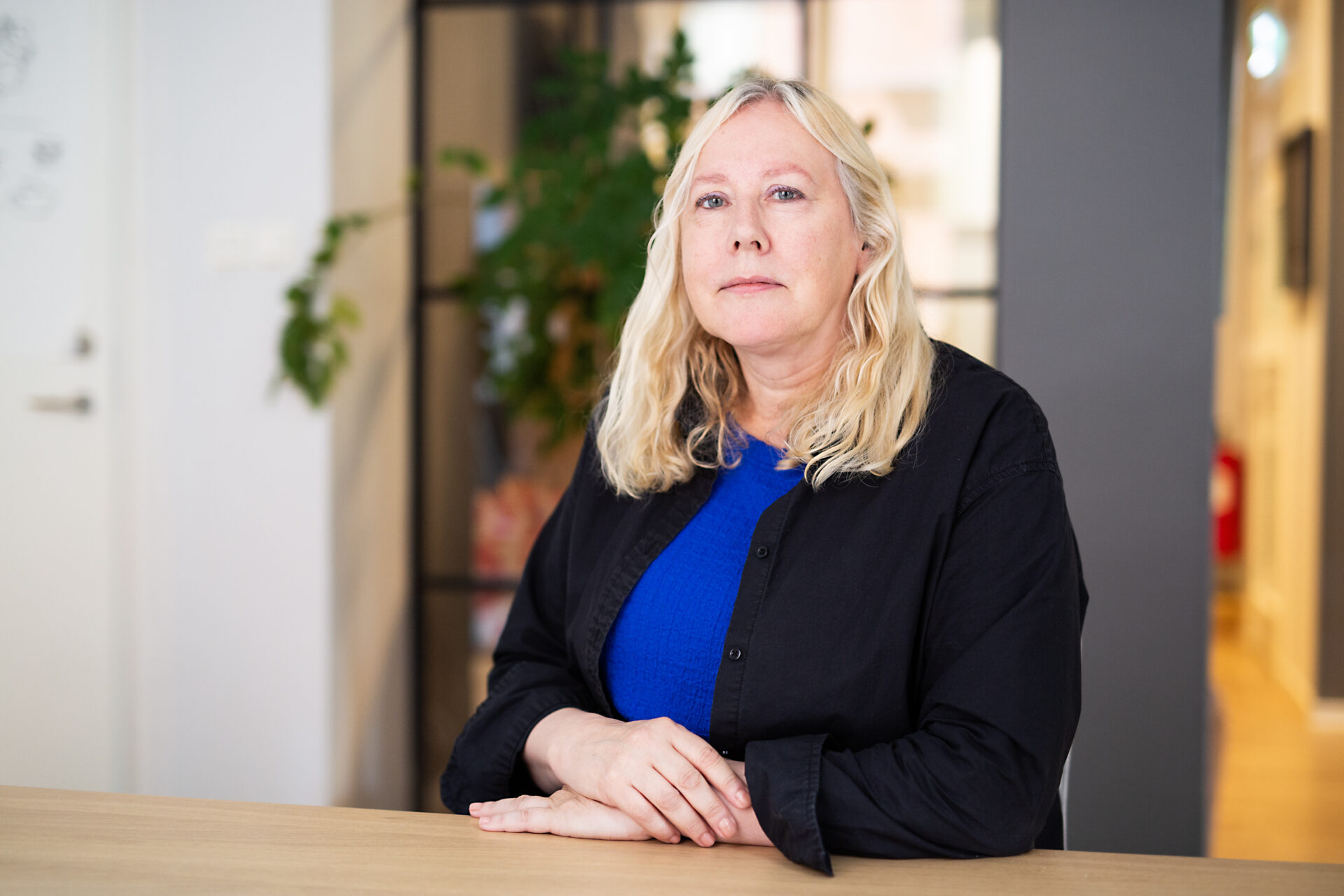Four Decades with IM – Anne-Sophie Björk’s Story

When Anne-Sophie Björk joined IM, she was just 18 – the youngest person at the Lund office. This year, she celebrates an impressive 40 years at the same organisation, a journey that mirrors both IM’s evolution and her unwavering commitment to human rights.
“I didn’t even know about IM when I applied,” she recalls, laughing. “I saw a job ad at the Employment Service and thought I’d give it a try. I went for an interview with Karin Östergren, who was the HR manager at the time, and by May 1985 I was starting my first day.”
It was a very different IM – and a very different Sweden. The organisation was based on Spolegatan in Lund, where a small chapel in the basement offered staff a chance to gather once a week for reflection. “I was the youngest, and many colleagues had been there for 30 years,” she remembers. “It was an exciting place – slightly quirky, but with a unique sense of calm. My colleagues shared so much of IM’s history with me.”
Her first role was split between two departments. Half of her time was spent in the filing room, archiving donors’ payment slips, while the other half was in the ‘thank-you department’, where she handled thank-you letters, memorial gifts, greetings, and sorted the day’s donations.
At that time, about 50 people worked in the Lund office. On the same floor was “Handis”, a workshop where women turned fabrics from IM’s Vlasti project in Greece into garments. These were sold in IM shops and by volunteers across Sweden. The product range also included textiles made by Tibetan exiles and people affected by leprosy in India and Nepal.
A Meeting with IM’s Founder
One encounter that left a lasting impression was meeting IM’s founder, Britta Holmström. “When she was coming, everyone said, ‘Here comes Britta – you must shake hands!’ She was gentle, soft-spoken, almost spiritual. She truly saw everyone – you felt special just being in her presence.”
When Britta passed away in 1992, the staff gathered in the chapel to remember her. Her son, Stefan Holmström, was Secretary General at the time.
From the very start, Anne-Sophie felt that IM was ahead of its time. “Self-sufficiency and women’s rights were central from early on. We have always stood up for vulnerable groups, like Tibetan exiles and Kurds from Turkey. I’ve even met the Dalai Lama three times!”
Crisis, Change, and Optimism
In 1995, IM faced a major reorganisation. Financial pressures and declining donations meant cuts were unavoidable, and many colleagues – including the seamstresses – lost their jobs. “I lost so many colleagues, and it was a hard time. But I’ve always believed in IM. We do so much good work and have such fantastic people here.”
For a few years, Anne-Sophie was solely responsible for the donor register. Meanwhile, IM’s fair trade initiatives gained momentum, and by the late 1990s the organisation’s finances were on the up. New fundraising managers and face-to-face recruitment on the streets led to a rise in regular donors. “I’ve been in daily contact with donors from day one. It’s a key part of my role.”
Integration, Gaza, and the Future
The 2015–2016 project Det nya landet (The New Country) is an example of IM taking a bold stance. It focused on mutual integration following the refugee wave and sparked strong reactions. “People asked why we were so engaged, but we stood firm. We had answers for everything.”
Anne-Sophie remains optimistic about IM’s future, highlighting the organisation’s work in Gaza and Ukraine and the importance of long-term commitment. “We’ve been in Palestine for a long time. We’re where we’re needed most. I’m proud to be part of that.”
A staff trip to Romania in 2000 also left a lasting mark. She visited both IM-run and state-run children’s homes. “The difference was striking. In the state home, each child had just a bed and a small table. The staff were strict and impersonal, and the children lacked human contact. It was hard to see, but it reminded me why we’re needed.”
“We Must Dare to Keep Up with Our Time”
Throughout her long career, Anne-Sophie has witnessed setbacks and triumphs alike, but her faith in the organisation has never wavered. “Sometimes people forget the history. But we try, and we stay the course. At the same time, we must be willing to keep up with the times.”
After four decades of change, challenges, and growth, the same principle continues to drive Anne-Sophie Björk: a belief in the equal worth of all people – and a determination to make a difference. “IM has changed a lot over the years, but the core has remained: our conviction that a better world is possible. That’s why I’ve stayed.”
Text and photo: Malin Kihlström
By: Malin Kihlström